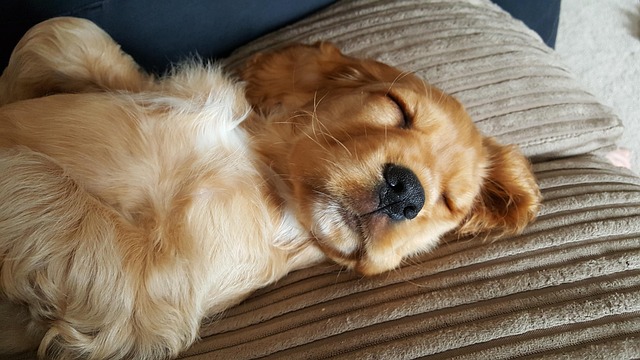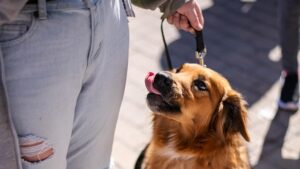Dog Panting at Night: Causes, Concerns, and When to Call the Vet
Have you woken up to the sound of your dog panting at night? A dog’s panting is a normal way to regulate body temperature, but when it happens while they should be resting peacefully, it’s natural to wonder, “Why is my dog panting so much at night?”
Today, we will help you understand the common and medical causes behind nighttime panting.
We’ll look through how to spot red flags, explain what increased water intake might mean, and outline when it’s time to call the vet.
Most importantly, we’ll see why tracking these overnight patterns is the key to catching potential issues early.
Key Takeaways
- Occasional panting is normal, but frequent, intense, or sudden nighttime panting can be a sign of a health issue.
- The most common causes include being too warm, stress, or excitement after a busy day.
- More serious causes can include pain, respiratory problems, heart disease, or a condition like Cushing’s disease.
- Pay attention to patterns. Note when the panting starts, how long it lasts, and if it’s paired with restlessness or increased water intake.
- If panting is new, severe, or accompanied by other symptoms, talk to your vet.
Why Is My Dog Panting at Night?
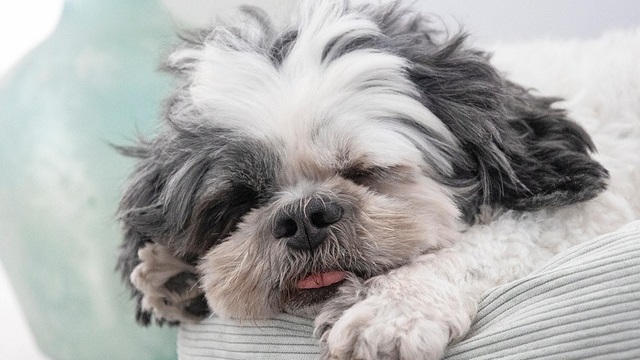
Panting is a dog’s primary way of cooling down, but it can also be a response to pain, stress, or excitement.
When panting occurs at night, the context is everything.
Is your dog panting gently after a warm day, or is it a new, heavy pant accompanied by restlessness? The answer can help you determine if it’s a normal occurrence or a sign that something is wrong.
Common Non-Medical Causes of Nighttime Panting
Not all nighttime panting is a cause for alarm. Many factors can answer the question “why is my dog panting at night?”
Warmth
If your dog’s sleeping area is too warm, they will pant to cool down.
Post-Exertion
A big day of playing, a long walk, or even an exciting trip to the park can cause your dog to have a higher body temperature and heart rate as they wind down.
Stress or Anxiety
Dogs can have nightmares, be startled by noises, or experience anxiety. This can lead to a brief period of panting and restlessness as they try to resettle.
Age
Senior dogs may pant more frequently due to changes in their body’s ability to regulate temperature or simply as a result of their sleep-wake cycles changing.
“I got the Maven sensor for my 14-year-old Chihuahua mix with heart and trachea issues. It gave me back peace of mind – I can track her RRR, BPM, drinking, and activity anytime and know instantly if something’s wrong. Highly recommend!”
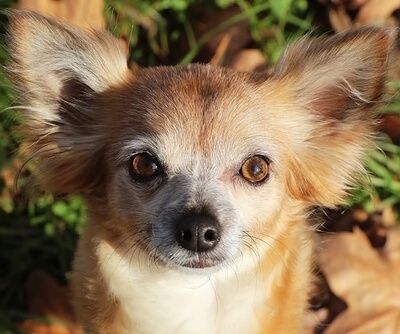
★★★★★
Chiara De Luca
Titti
Health Issues That Can Cause Panting at Night
While some causes are benign, frequent or intense dog panting at night can be a symptom of a health issue.
Pain
Even mild, chronic pain from conditions like arthritis or dental problems can cause restlessness and panting at night.
Respiratory Issues
Conditions such as pneumonia, asthma, or a collapsing trachea can make breathing difficult, leading to increased panting as the dog tries to get enough oxygen.
Heart Disease
Canine heart failure can cause fluid to build up in the lungs, making it hard for your dog to breathe. This difficulty often becomes more pronounced when they lie down, leading to heavy panting at night.
Cushing’s Disease
This endocrine disorder, caused by an overproduction of cortisol, can cause a range of symptoms, including increased thirst, urination, and persistent panting, especially at night.
Fever
Just like humans, a dog with a fever will pant to try and bring their body temperature down.
Dog Panting at Night and Drinking Lots of Water: What It Could Mean
When you notice your dog panting at night and drinking lots of water, it’s a specific combination of symptoms that warrants closer attention.
- Heat or dehydration
- Pain or discomfort
- Health issues, such as Cushing’s disease, kidney disease, or diabetes mellitus.
If you observe this pattern frequently, it’s a red flag. Start tracking how much water your dog is consuming and discuss it with your vet.
When to Call the Vet
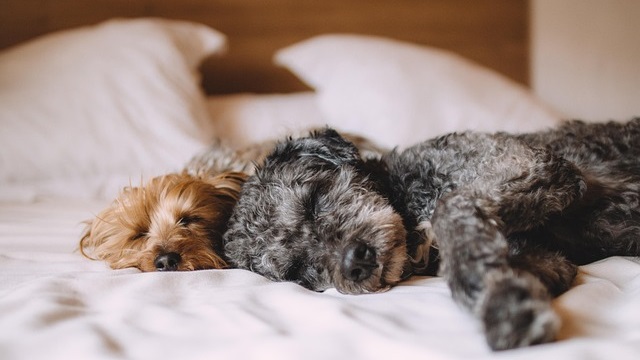
“While occasional panting can be normal, frequent or intense panting at night can be an early sign of discomfort, pain, or illness. Tracking these patterns helps us detect issues before they escalate.” — Carolina Domingues, DVM
There’s no need to panic over a single instance of panting, but if you’re concerned and wondering “why is my dog panting so much at night?”, it’s better to be safe than sorry.
Call your vet if you notice:
- Sudden, new, or very heavy panting that is out of character for your dog.
- Panting that is accompanied by restlessness, pacing, or an inability to get comfortable.
- Panting paired with increased water intake or urination.
- Any panting that is accompanied by other symptoms, such as coughing, lethargy, loss of appetite, or pale/bluish gums.
- Your dog’s panting becomes so severe that they have trouble sleeping.
Why Tracking Nighttime Behavior Helps Detect Problems Early
Many health issues, particularly in their early stages, don’t present with obvious symptoms during the day. However, subtle changes often show up at night when the body is at rest.
This is why a tracker is a game changer.
By passively and consistently monitoring your dog’s nighttime behavior, you can establish a baseline for what’s normal.
This makes it easier to spot subtle deviations, like a slight increase in respiratory rate or a pattern of restlessness, that could be the first sign of health problems.
This information is extremely helpful to your vet, allowing for a more accurate diagnosis quicker.
How the Maven Pet Health Monitor Monitors Nighttime Panting and Activity
The Maven Pet Health Tracker uses an advanced sensor to passively track key indicators while your dog is sleeping or resting.
- Respiration Rate: Maven’s monitor measures your dog’s breathing rate, so you can see if it’s consistently higher than normal at night.
- Sleep Quality & Restlessness: It logs periods of deep sleep versus restlessness, alerting you to changes that could indicate discomfort or anxiety.
- Activity Patterns: It gives you a complete picture of your dog’s activity, showing if they are getting up more often at night, pacing, or unable to settle.
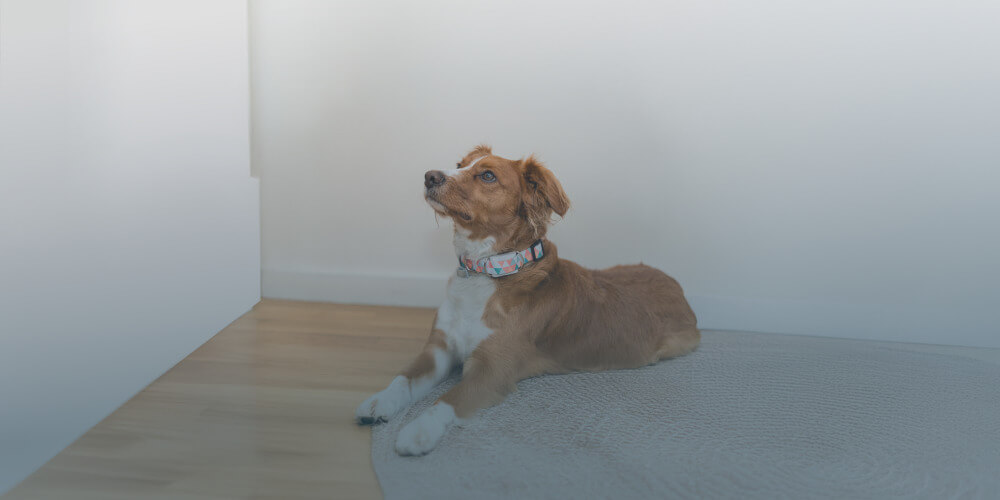
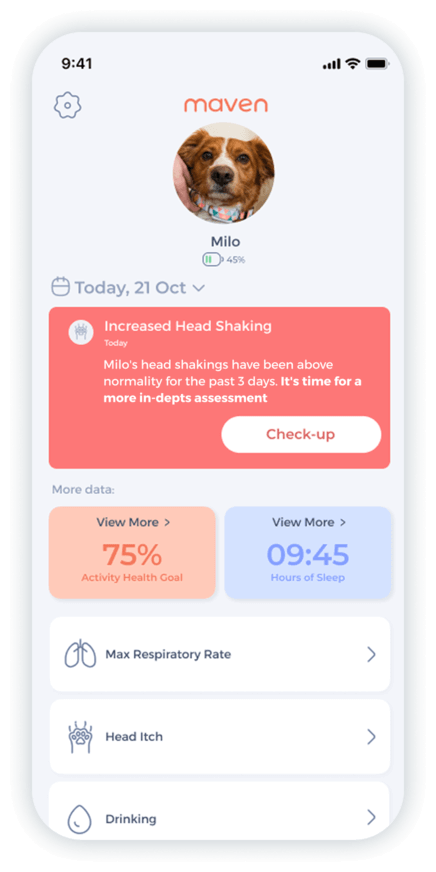
Monitor heart rate, respiratory rate, activity & rest, drinking, itch behavior.
This data provides a comprehensive picture of your dog’s well-being. By sharing these insights with your vet, you can have a more informed conversation, helping them connect the dots and recommend the right course of action.
Takeaways Recap
- Occasional panting is normal, but sudden, frequent, or intense dog panting at night can be a sign of a health issue.
- Common causes range from a warm room or excitement after a busy day to serious health problems.
- More serious causes can include pain, heart disease, or respiratory problems.
- Note when the panting starts, its intensity, and if it’s paired with restlessness or increased water intake.
When in doubt, call your vet. If panting is new, severe, or accompanied by other symptoms, it’s always best to get a professional opinion.
Maven Pet focuses on improving the quality of life of our pets with technology, using artificial intelligence (AI) to enable proactive pet care. By accurately collecting and monitoring pet data 24/7 and flagging any irregularities, Maven Pet empowers pet parents and veterinarians to stay ahead of potential health issues, ensuring the well-being and longevity of our beloved companions.

